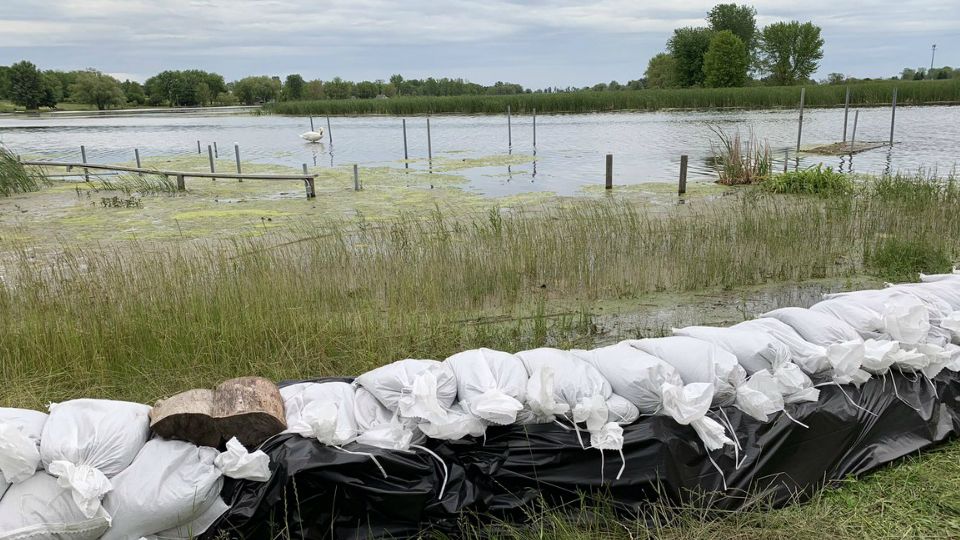The Restore Mother Nature Bond Act, which would have been the largest in state history, was supposed to reduce the risk of flooding for vulnerable communities, restore habitat, and prepare the state for climate change.
It’s become another victim of the COVID-19 pandemic.
What You Need To Know
- Governor Cuomo is postponing a vote on the bond act until NYC rebounds economically
- New Yorkers were to vote on the issue in November
- The Nature Conservancy calls the decision “a missed opportunity”
- In other news, New York State’s COVID rate is at 1.06%
On today’s conference call with reporters, Governor Andrew Cuomo said the vote will be postponed until next year.
“The financial situation now is unstable,” he said. “I don’t think it would be financially prudent to do it at this time.”
The governor expanded on why the situation is not conducive to implementing a bond act at this time.
“The New York City economic situation is very murky. There’s been a negative confluence of events in New York City that has aggravated the situation that we were dealing with from COVID,” he said. “You have COVID, you have increasing crime issues, you have increasing homelessness, you have civil disturbances. You put all this together and it’s an ugly mix.”
Reaction to the news was swift.
Bill Ulfelder, New York executive director of The Nature Conservancy, issued an emailed statement calling the decision “a missed opportunity.”
“While it is clear that the pandemic has had a serious impact on the economy of our state and the nation, this measure was an opportunity to create jobs and conserve the clean water, clean air, and natural resources our children and grandchildren depend on,” Ulfelder stated.
But Cuomo told reporters there are a variety of reasons he believes now is not the time to ask voters to pass a bond act. He cited the U.S. Senate’s consideration of one particular bill that could make a full economic recovery in New York City almost impossible.
Under the proposal, which was originally sponsored by Republican Senator John Thune and expanded upon in the Senate’s HEALS Act, Cuomo said people would be allowed to pay their taxes from either their workplace or, if they were working from home, from their home jurisdiction.
“This would have a very negative effect on New York City,” he said.
Many people, including high earners, left New York City during the height of the pandemic. If these people were allowed to pay taxes from the jurisdiction to which they fled, New York City would suffer.
“Hamptons, Hudson Valley, Aspen, Wyoming. I talk to these people all day. They’re all somewhere else,” he said. “If the federal government passes that law and they can now pay their taxes from this period from their residence in Wyoming, or their residence in Suffolk or their residence in Columbia County, rather than New York City, that is going to be a major impact on New York City.”
Cuomo is also concerned that the longer the pandemic keeps people working from home, “the more challenging it will be to get these people back.”
“We used to talk about the threat of people leaving the city,” he said. “I’m more focused on getting people to come back to the city now.”
In other news to come out of the conference call, Governor Cuomo said he would make $30 million available to counties to increase contact tracing and to ensure counties start setting up flu vaccine accommodations.
“What we are anticipating, and what we want to prepare for come flu season, people will need flu tests. They will also want COVID tests,” Cuomo stated.
The symptoms for the flu are similar to symptoms for COVID. Because both tests will be done by the same group of labs, the governor is concerned that an uptick in flu testing will slow down the results of COVID testing.
“If they now have to do flu tests and COVID tests, that could affect the turnaround time on the COVID tests,” he said. “So we want the counties to be ready for their flu vaccine and flu testing.”
According to the governor, the COVID numbers in New York are “very good."
After conducting 73,546 tests yesterday, 777 were positive. That is 1.06%. Thirteen people died from the virus; 586 people were hospitalized, which is down 33, “a new low since March 17,” said Cuomo.
One hundred and forty-two COVID patients are in ICU, which is down 12, a new low since March 16, according to the governor.
Seventy-two COVID patients have been intubated, which is another new low since March 15.
“That is all great, great news,” the governor noted.
